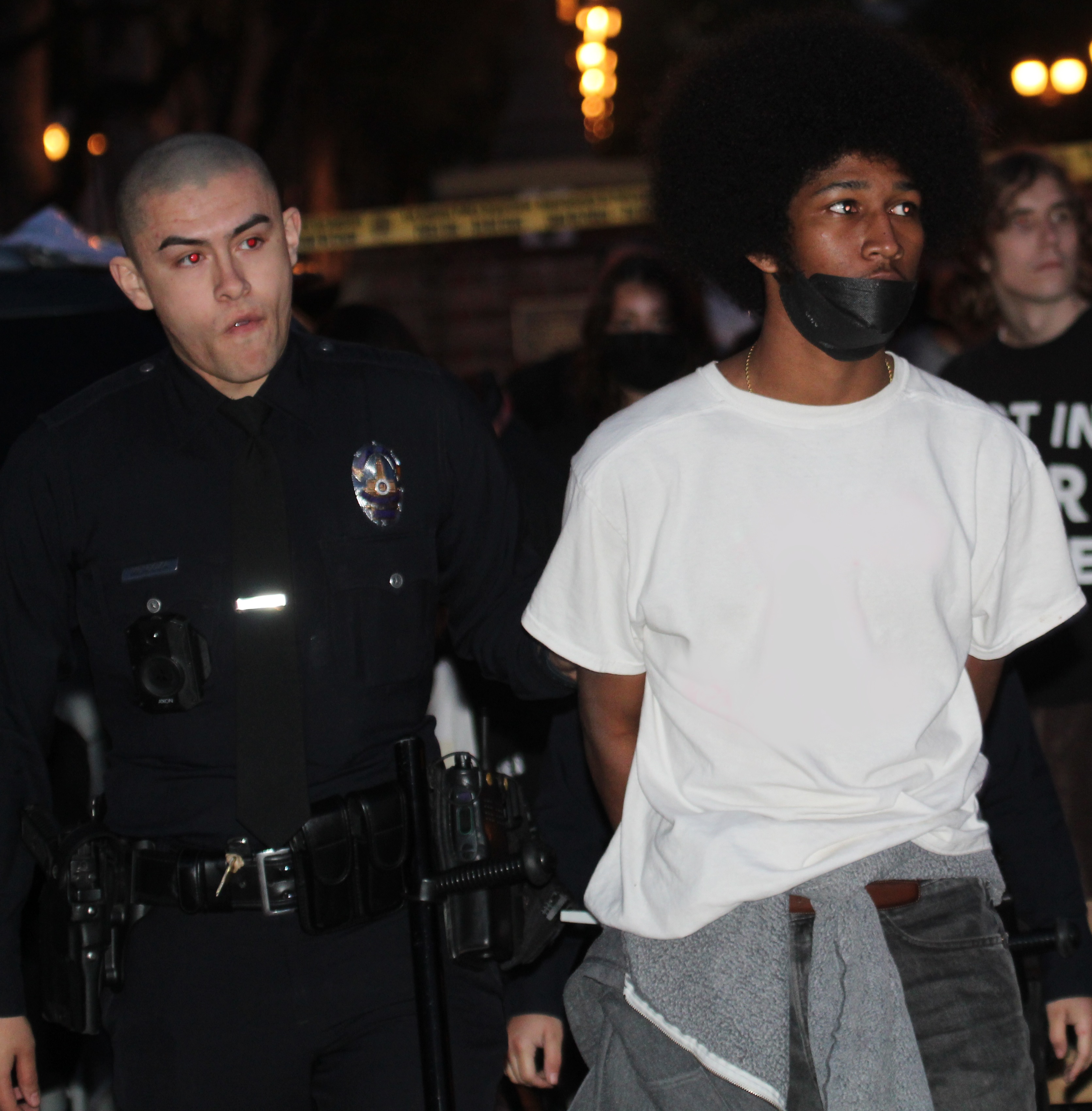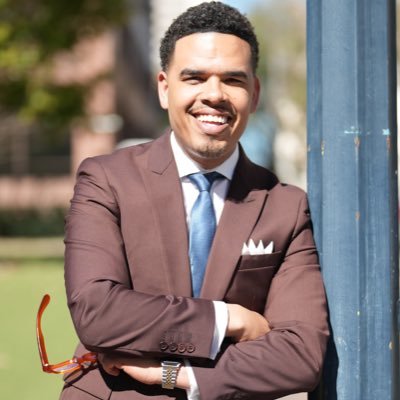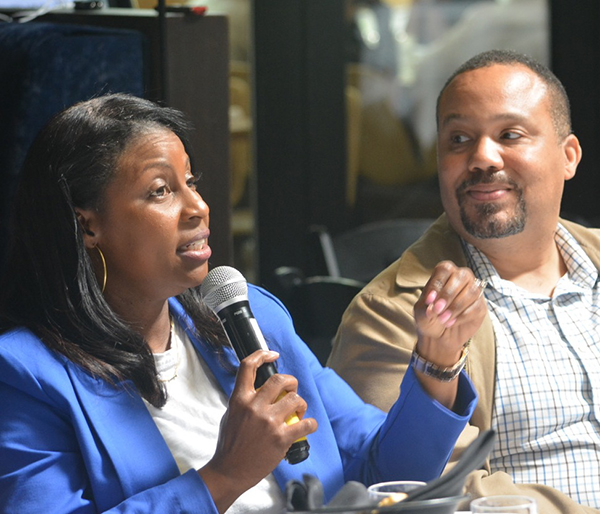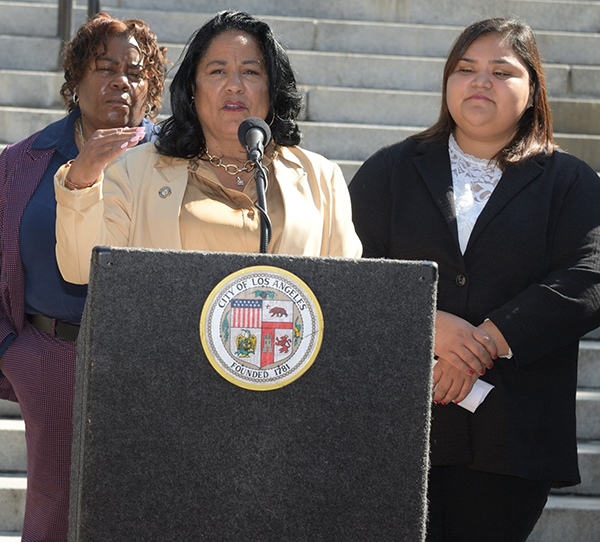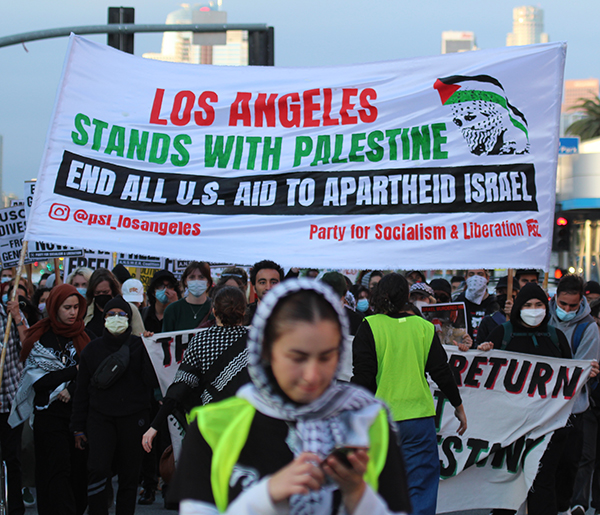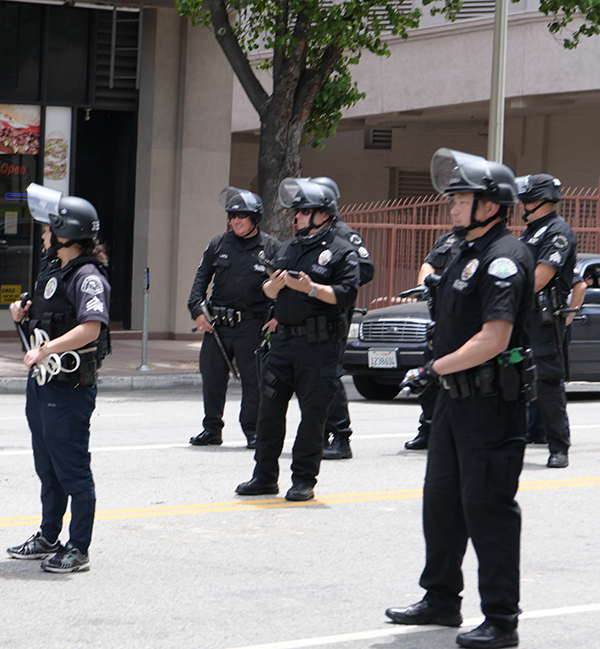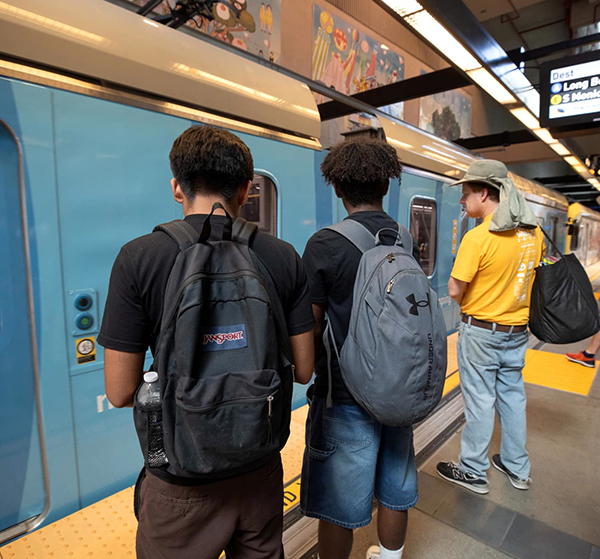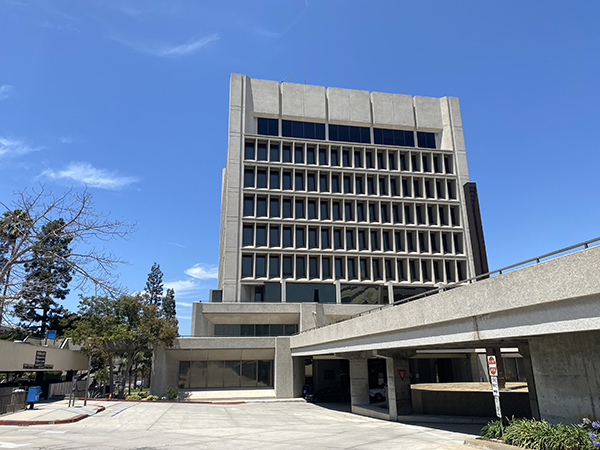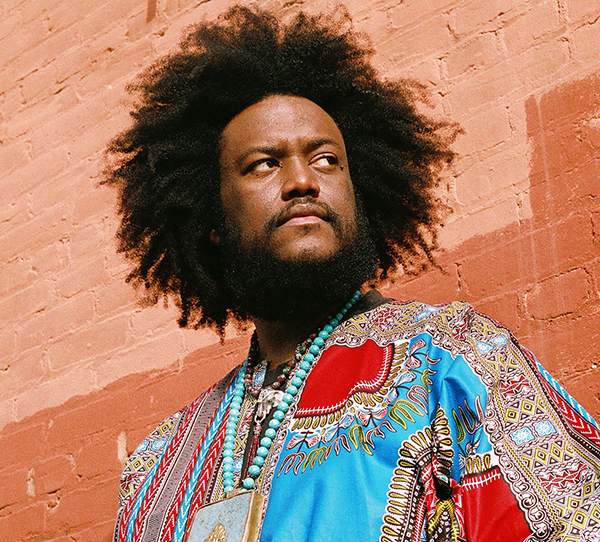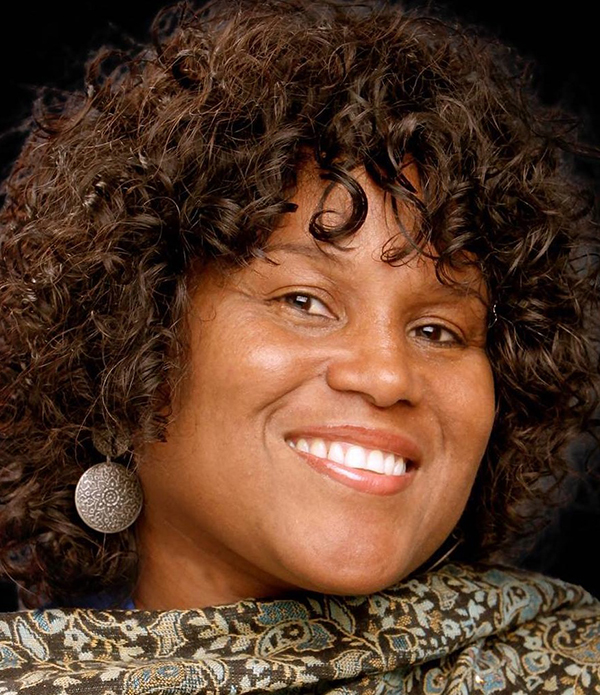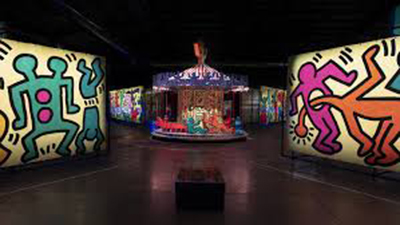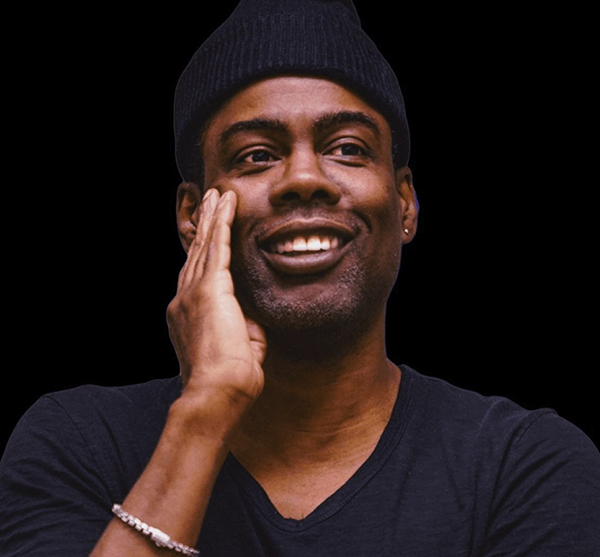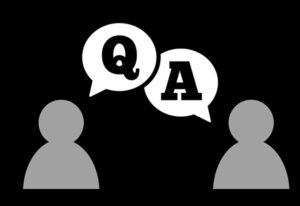
By Darlene Donloe
Contributing Writer
Kamasi Washington, the introspective tenor saxophonist causing tsunamis in the jazz world, has been playing his way toward stardom since he was a teenager.
Today, at 42, he’s being called “one of the key jazz bandleaders and players of the last decade.”
“Hopefully, that means you’re doing something good,” said the South Los Angeles native who studied ethnomusicology at UCLA. “It’s a huge honor. I’m humble in those types of situations. I feel like music is such a huge thing. I don’t put too much weight on it.”
Despite his elevation in the jazz world to a premier artist, Washington admits he’s still surprised when artists with the musical mastery of Herbie Hancock know his name.
“Every time I run into him, I’m like, ‘Hey Mr. Hancock, you may not remember me,’” said Washington, the father of a daughter. “I can’t wrap my head around the fact that I know Mr. Hancock like that.”
The two musical powerhouses now know each other very well after co-curating the upcoming Hollywood Bowl Jazz Festival, set to take place June 17-18. Hancock, a 14-time Grammy Award winner, who is not expected to play at the festival, is also the LA Philharmonic’s creative chair for jazz.
“We’ve been working with the team at the LA Phil to produce a one-of-a-kind experience,” said Washington, who is into all kinds of music including classical, funk, R&B, South American, Indian, and world music.
Some of the artists on this year’s lineup include Samar Joy, Poncho Sanchez, Ledisi, Digable Planets, Herbie Hancock Institute of Jazz Performance Ensemble at UCLA, Bell Biv Devoe, Aziza, Lionel Loueke and Gretchen Pariato, St. Paul & The Broken Bones, and LACHSA Jazz.Washington grew up around music. His father, Rickey Washington, a professional musician, played the saxophone and the flute. Washington, who at one time fancied playing the drums, would soon follow in his footsteps.
His interest in music grew after he attended the Academy of Music at Alexander Hamilton High School and as a member of the prestigious L.A. Multi School Jazz Band where he would go on to play alongside young musicians who would go on to become heavyweights in the industry including Terrace Martin, Isaac Smith (trombone), and the Bruner Brothers — Ronald Bruner Jr. on drums and Stephen Lee “Thundercat” Bruner on bass.
Washington, who continues to play the same horn his father gave him before he decided to make music his life, provided the saxophone on Kendrick Lamar’s award-winning CDs “To Pimp A Butterfly” and “Damn.” He also composed the Grammy-nominated score for Michelle Obama’s Netflix documentary, “Becoming.”
To understand why Washington’s popularity continues to soar by leaps and bounds, one need only listen to his 2015 hit CD, “The Epic” and 2018’s double-album, “Heaven and Earth.”
I recently spoke to Washington, a founding member of the jazz collective West Coast Get Down, about his career and the upcoming festival.
DD: You are co-curator of the Hollywood Bowl Jazz Festival with Herbie Hancock. What is that like?
KW: It’s an amazing experience. When I got the call, it was a surreal moment. You’re like, “Wow.”
DD: Talk about the lineup.
KW: I’m super excited about the lineup we came up with. We had a lot of names but there are only so many hours of the day. We had to boil it down. It was a fun process. It’s like preparing a seven-course meal. It’s an experience that crosses a lot of different lines. It’s indicative of the music today — so many styles of music live beside each other.
DD: Is it a jazz festival when several performers are not actual jazz artists?
KW: With African American music, we create these genres that split everything up. All this music is related to each other. I don’t see a huge benefit to them being disconnected. To have the music feel like we’re all family is a beautiful thing. It’s going to be a beautiful day.
DD: When you dreamed your dream for yourself, did it look like it does today?
KW: I can honestly say, I’ve gone past my dream and got to a new place of dreams beyond my dreams. Since I was a kid, my dreams have progressed. I just wanted to play good music. Then it progressed to music I was able to share with the world. Now, I’m in a new frontier of my dreams, which is to make the best music I can.
DD: In musical terms, describe happiness.
KW: In musical terms, it’s connecting with people. It’s about the musicians I’m playing with and the people listening to us. I’m in my most joyous state when we’re all as one, all moving in the same vibration.
DD: What happens to you when you’re on stage?
KW: My mind goes blank. I’m just in the music. I’m almost not there. The sound and the energy becomes like water. I’m floating in them.
DD: 2015’s “The Epic,” your breakthrough triple-LP, was appropriately named. It was epic. You had West Coast funk, strings, R&B, jazz and choirs. Does that mean you’re not a purist when it comes to music?
KW: Absolutely. The whole idea of a purist means you are closed to your realm of possibility. I don’t approach music with an ego. The music is in charge, not me. With that, music comes from beyond what we are. Our terms and terminology don’t control music or spirit, heart, God or the universe. I’m a servant of the music.
DD: What will audience members hear during your set at the Hollywood Bowl Jazz Festival?
KW: I do it intuitively. A lot of times I’m looking at what my heart is feeling and where it feels like going. It’s a journey. It depends on where we are and who we are playing for and who is in the band and on the stage. I use my gut. We play at the seat of our pants.
DD: You often speak of self-empowerment. What does self-empowerment mean to you and what role does it play in your music and life?
KW: Music is self-expression at its core. To be self-empowered is to know yourself. To me, it’s the ability to create music and express myself the way I want.
DD: When you listen to Charlie Parker, Sonny Rollins and John Coltrane, what are you trying to learn?
KW: They were the sound of their generation. It’s a lesson. They are brilliant and accomplished musicians. They’re masters. They were conduits of the time they were in. They skillfully expressed who they are.
DD: What comes to mind when I say Art Blakey?
KW: My first love. Art Blakey and the Jazz Messengers. I’m into Black music. He kept his brand of jazz very steeped in the African-American aesthetic. His music sounded like that. I related to it at a point in my life. It felt very Black.
DD: What is jazz?
KW: It’s African American classical music, along with blues and gospel. It’s original music created by African Americans.
DD: What does music do for you? Can you live without it?
KW: Can I live without music? It would be hard. Maybe I could live without playing. It’s in me too much. Music is in me no matter what.
“The Q&A” is a feature of Wave Newspapers asking provocative or engaging questions of some of L.A.’s most engaging newsmakers or celebrities.
Darlene Donloe is a freelance reporter for Wave Newspapers who covers South Los Angeles. She can be reached at ddonloe@gmail.com.

